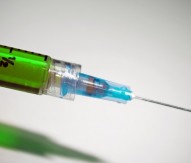
Project to develop green chemicals for food industry
The UK’s University of Manchester has announced its participation in a multimillion-pound project to produce more environmentally friendly chemicals for the food industry.
The €11.3m ‘Expanding the industrial use of Robust Oxidative Biocatalysts for the conversion and production of alcohols’, or ROBOX, project will develop sustainable alternatives to industrial oxidation utilising innovative biocatalysts and air in a safe and green way that is not currently available to the industry.
It is envisaged that the innovations will be used to make safer and more effective drugs and to develop chemicals for the perfume industry and flavourings for the food industry. The venture is led by Dutch firm DSM Chemical Technology R&D, is a partnership of companies and universities from across Europe and is receiving €8.3m from the European Commission. The biotechnology innovation action runs until 2019.
The University of Manchester’s Professor Nicholas Turner will lead the initiative for the use of these novel techniques to produce drug metabolites that will be used to make new drugs better and safer. He said: “A lot of the processes we use currently are expensive and not very cost effective. This is a unique opportunity for academic groups to work alongside chemical companies and specialist SMEs to develop innovative biocatalytic processes for applying oxidation for chemical synthesis.
“We believe that challenging problems of this nature are best solved on a pan-European basis by bringing together under one roof the combined expertise of many groups to establish a world class research hub in biocatalysis and sustainable chemical synthesis.”
It’s hoped the project’s developments will have several environmental and safety advantages over conventional chemical manufacturing methods presently applied in industry. Chemical oxidations are hazardous processes using the worst chemicals, toxic metals and very environmentally damaging solvents. It is one of the dirtiest aspects of chemical manufacturing and biocatalysis not only offers cleaner production methods, but can also deliver improved products.




